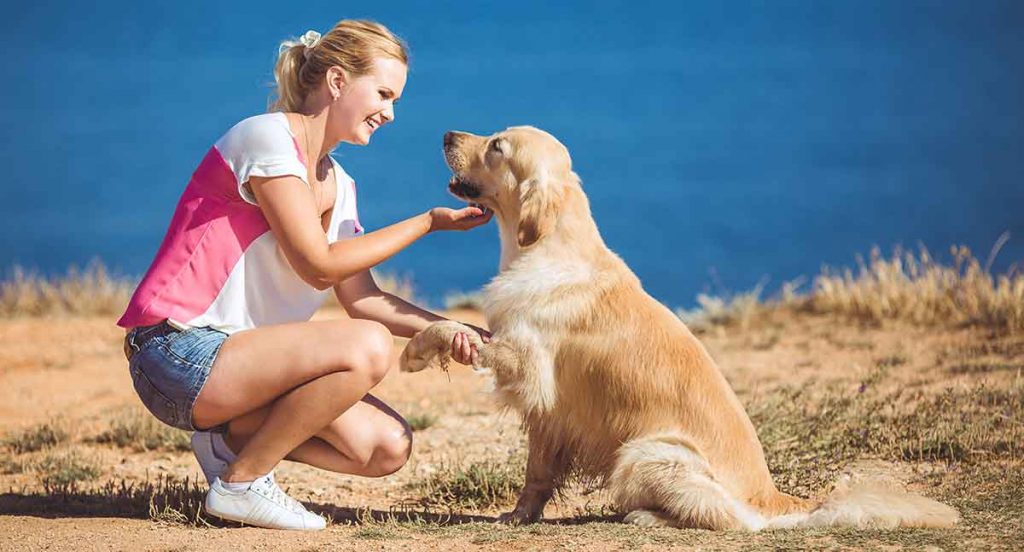
Training should be a great adventure for you and your dog. But sometimes the challenges can be hard to overcome!
Golden Retrievers are renowned for their wonderful temperaments! But they are still big, strong dogs, and when young, they can be very boisterous.
Let’s make training fun!
I really want to help you beat those challenges and have a lot of fun training your dog. So I’ve selected some helpful Golden Retriever training tips below, that will get you off to a great start!
I’ve also set up an email list to help as many people as possible with regular tips to keep you going over the next few weeks! These tips should answer many of your dog training questions.
You can get my weekly email tips by popping your email address in that box. You’ll usually receive one or two emails a week. I sometimes add an extra one in, but that’s the exception rather than the rule.
There’s an unsubcribe button in every email so you can turn them off when you’re done!
Let’s get started!
Let’s get going right now, I’ve some great tips to get you motivated!
Golden Retrievers are such smart, happy dogs, and I think you’ll find your friend learns really quickly once you get in the swing of things!
#1 Give It Five!
So my first tip is to start building a daily training routine. Before you dive in at 5am with a half hour session – I’m not talking about the time of day.
I’m talking about the length of your training session. In minutes. So often we leap into new habits with big plans and they just overwhelm us.
So my tip is to start with 5 minutes a day. Absolute maximum. You could even make it 3 minutes! And yes, there is actually a lot you can do in three minutes a day.
#2 Link It!
Train at a time of day that you know you’ll be able to keep to most days.
Link your training session with something you already do as a habit.
Like the five minutes after you clean your teeth, or drop the kids off at school, or after you finish your supper.

#3 Give It 30
Make a committment to stick to your daily habit for a month.
For best habit forming results, try not to miss a day’s training for the first 30 days. If you can keep to this, you are highly likely to have a habit for life.
As for daily training, your Golden Retriever won’t mind training repeatedly because training is going to be the highlight of his day!
#4 Motivate Your Dog
Just like us, dogs need motivation to get up in the morning and go to work! Dogs don’t appreciate money, but they do appreciate food.
And toys. And access to opportunities to get involved in interesting activities. Like chasing butterflies or sniffing, or playing with other dogs.
But hey, we’ve only got five minutes, so we need to motivate the dog with something that’s quick to deliver and quick to consume. And food is right up there!
Of course, the dog will need to be hungry! It’s never a good idea to train just after a meal.
Remember that all food is not equal. Your dog may well work faster and harder for roast chicken, than he will for kibble. That’s just the way it works. If you need to focus your dog, or hurry things along, better treats are your friend.
#5 Mark It!
You’ve probably heard of marker training. And you’ve almost certainly heard of clicker training. Well they are one and the same.
A clicker is a marker, but it isn’t the only marker we use in dog training
So, what’s a marker for? Well it’s all about communication. Golden Retrievers really enjoy pleasing us. And earning rewards. But many times, it’s hard for dogs to know what we actually want them to do!
Your marker captures the moment perfectly. It could be the moment your dog drops his butt onto the ground, or the moment he lifts up a paw. Or the moment he looks into your eyes.
Your marker says “That’s It! That’s what I want you to do”
What gives the marker its power, is the food you follow it with. In a nice smooth loop Action → Mark → Reward
What’s more, you don’t need a clicker to start marker training. All you need is your dog, some of his food, and a word like YES!
Treat that marker word like a very important promise, follow it with food – always, and you’ll have a great way of communicating with your dog
#6 Start Simple
Don’t try to solve your long standing leash pulling problem, or your dog’s poor recall in your first training session.
Train something simple such as ‘eye contact’ or a ‘hand touch’ to begin with. And do it in gentle steps.
These first sessions should be easy. And they should leave both you and your dog wanting more. There will be plenty of time to challenge yourself later when you’ve established a regular daily training habit.
#7 Yes beats No
Try to focus on saying YES to your dog rather than saying no. In other words, catch your dog in the act of being good.
Look for simple things like sitting politely, keep paws on the floor, relaxing in his bed. And so on
Say YES when you see your dog do these things. The more you look for what your dog is doing right, the less your dog will do wrong. Don’t forget to follow YES with a treat!
#8 Ditch corrections
Punishment is history. We know you are not going to beat your dog or frighten them. But what about correcting your dog when they go wrong? Isn’t that okay. Necessary even?
It’s certainly been a popular view over the years. But did you know that many champion dogs in a range of different sports and activities, are now trained without the use of corrections?
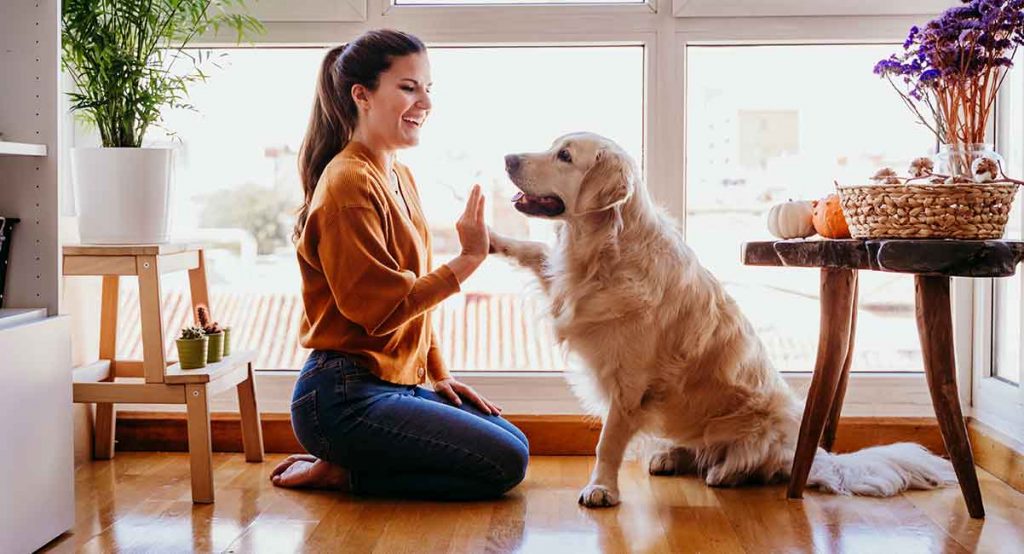
Force free training is now taking over as the method of choice for professional dog trainers and as the method recommended by vet and behavior experts worldwide.
That’s not just because force-free training works. It’s because punishments, even gentle corrections can slow down learning and even cause aggression.
All the training courses at Dogsnet are force-free and if you’ve been training with traditional methods in the past, now is the perfect time to crossover.
#9 Learn to manage your dog
Dog training is not just training. You can’t be training all the time and even when you are, there will be times when you need to manage your dog rather than train him.
Management prevents dogs from rehearsing bad behaviors. For example, placing a houseline on a puppy so that you can prevent them from jumping up at visitors. This isn’t training but it is managing the situation so you have less training to do in the future.
Keeping the kitchen surfaces clear of food once your puppy can reach them isn’t training. But it prevents a counter surfing habit developing in the future.
Saving you the trouble of curing a problem behavior that need never have started. Don’t be afraid to manage when you cannot train.
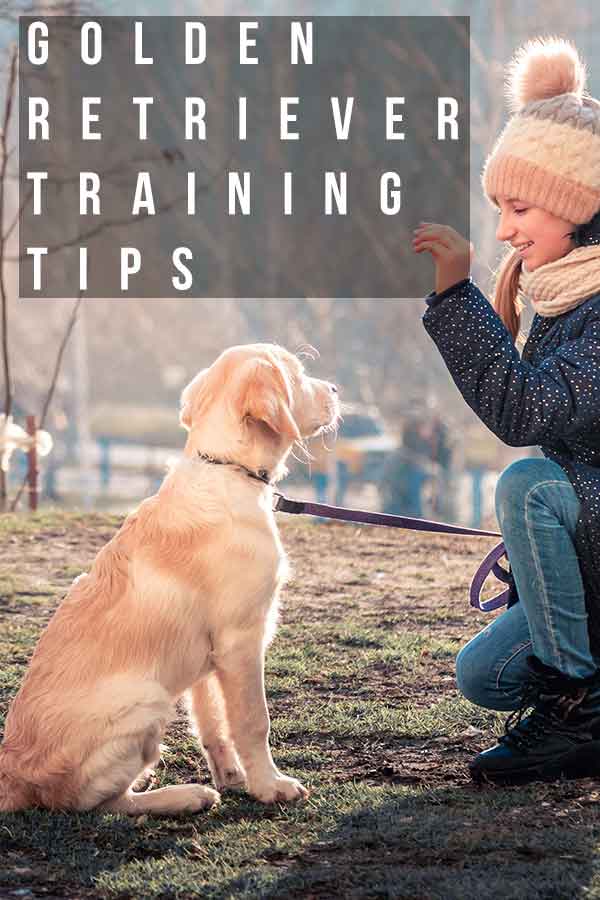
#10 Get filming!
Many of us have smartphones nowadays. If you are one of those, you have no excuse! Filming yourself training your dog is one of the most useful and interesting things you can do today!
Watching how you and your dog interact together is incredibly revealling and educational And it has the power to improve your progress immensely. Give it a go! We think you’ll love it.
You’ll find a simple bendy tripod phone holder handy, but you can manage without one. Just prop your phone up on any stable nearby surface. As long as the camera lense is exposed you can use a book or two to prevent it falling over.
#11 Go back a step
One golden rule in dog training is simple: if you mess up, back up
Never be afraid to go back to a point where you were succeeding. If you don’t have to do this at least once a week, you are probably missing something.
Everyone goes too fast at times, and gets ahead of themselves. If your dog isn’t winning he isn’t having fun.
Revisit success. Go back to the point where he was having fun, and move forwards more slowly. It will be worth the effort.
Have fun!
Enjoy training your Golden Retriever. There is so much fun ahead!
This is Rob Roy, and me (at about nine years old), he was one of the most wonderful companions I ever knew and a joy to live with.
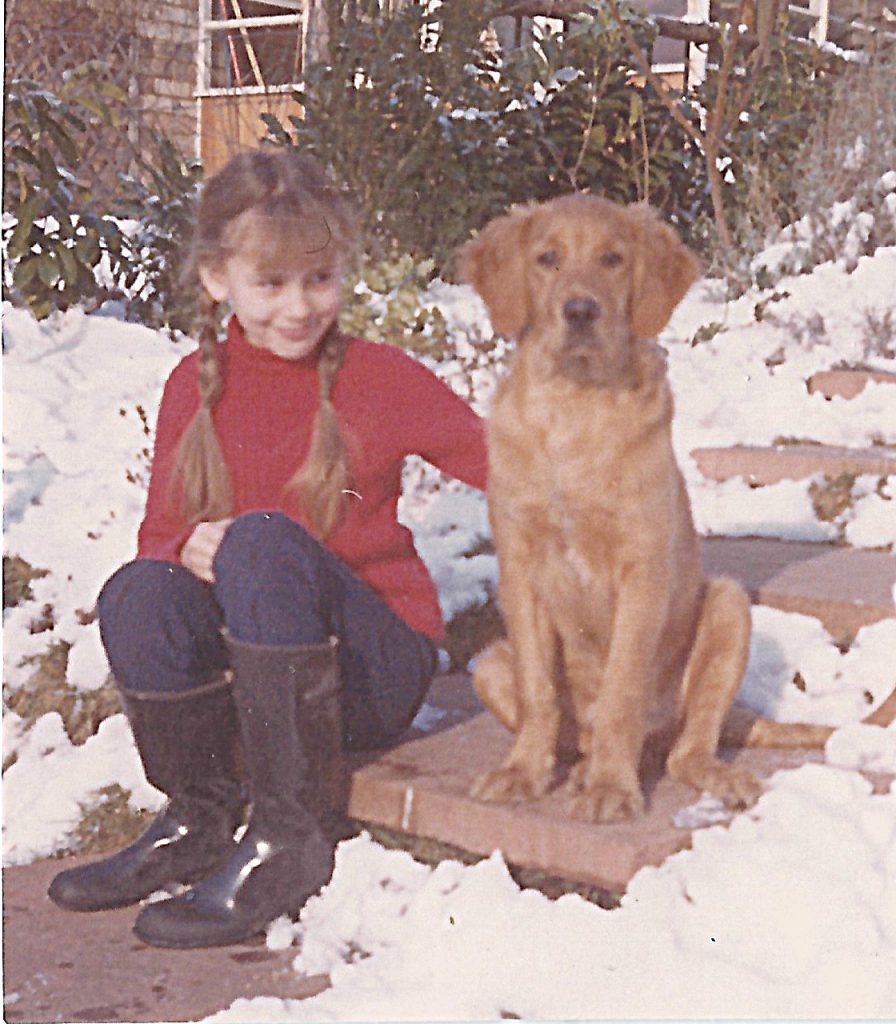
I wish I had known then, what I know today about modern training. But he tolerated my childish mistakes with patience and love. Just as your Golden will do.
You can catch more of my tips if you’d like to join in with my weekly emails.
Be patient, keep learning, and you’ll do just fine!
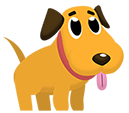
 How To Teach A Puppy Their Name
How To Teach A Puppy Their Name
How early can you start brushing my puppy’s teeth. He is a Bichon, 10 months old.
Is there a learning curve to doing it right?
Hi,
I have a golden retriever puppy named Caramel. She bit me during training! I’m sure it’s just a nip, but it HURTS! But the advice says it’s not good to say ‘No’ during training. But I don’t want to be bit!
Help!
Hi. I have 2 golden brothers. 1 1/2 years old. One was bit in the face badly by a pit bull when he was 9 months old.— Now he isn’t very kind to other dogs when they come to play. Not sure how to get him back to what he was. I know it was a bad bite. Very traumatic. My other one is fine, but not sure what to do. This makes me sad. Any suggestions?
Hi there, I have Mini goldendoodle, she, Abby is 4months old, she is aggressive with me, she jumps and bites me when I’m in the yard trying to play ball with her, or sometimes even when I’m just walking. She will growl and nip, she has ruined so many shirts, and pants by biting. How do I control this? I have been picking her up and holding her collar and ear so she doesn’t bite me and I put her in the house, time out! I have also put a short lead on her to control her, should she perhaps wear that lead all the time I’m outside with her? She has done this inside also. Please advise me.
Hi
I see that your query was posted in June so I hope that you’ve already had had some helpful replies. I too have a biting puppy who seemed agressive. First play and be friends, build a relationship. As soon as pup starts to growl and bite, stop, do not walk about whilst pup is in this mood, let it calm down. The more you correct by punishment the more it is likely to escalate and there will be a loss of trust between you. It is possible to ‘Time out’ by ignoring or putting pup behind a baby gate or the like but only for a very short time. I’ve found that this mood happens when pup is tired or overwrought so calm pup down. A long lead might help when you are with puppy to hold her from nipping you whilst you get her to calm. Treat your pup well with consideration and it will pass and you’ll have a friend who will respect you for life.